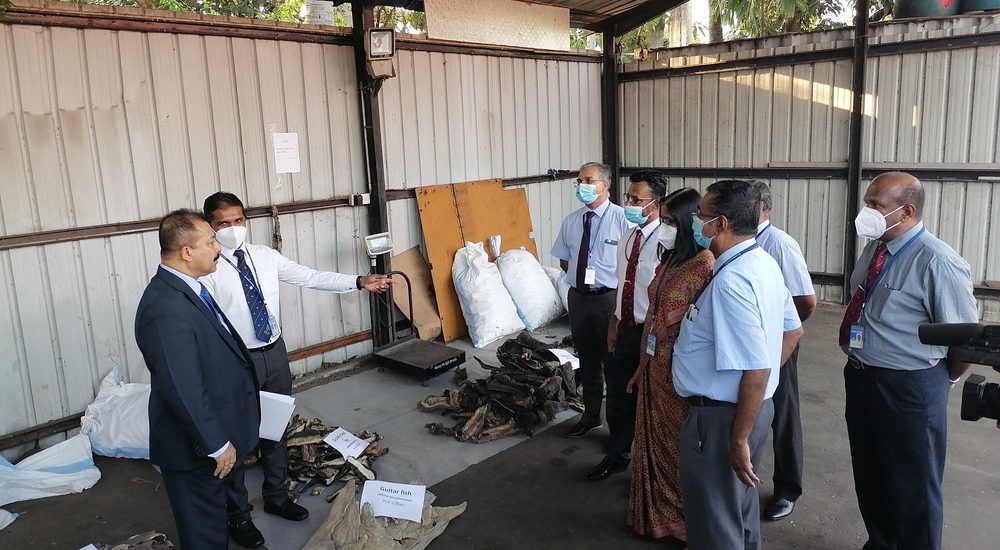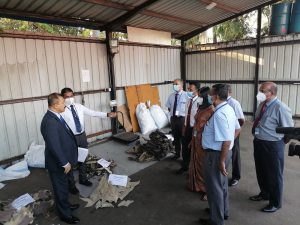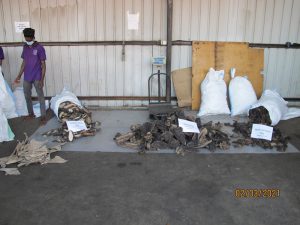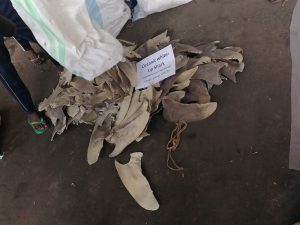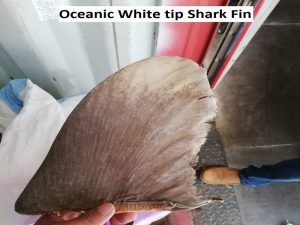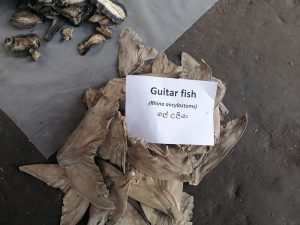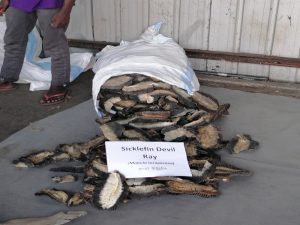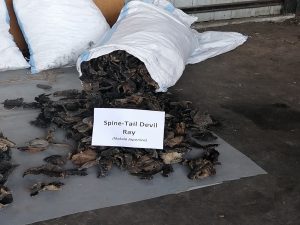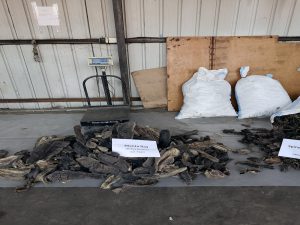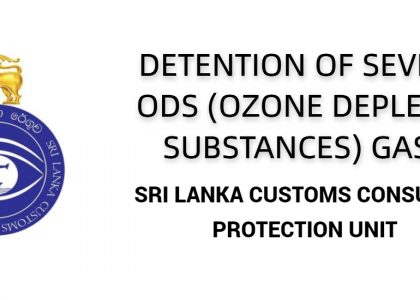- Protected Shark Fins (Dried) – 307 kilograms, belongs to approximately 300 sharks
- Mobulid Ray Gill plates (Dried) – 248.5 kilograms, belongs to appx. 800 rays
Biodiversity, Cultural and National Heritage Protection Branch of Sri Lanka Customs has seized a large quantity of dried shark fins and Mobulid ray gill plates protected both nationally and internationally while attempted to illegally export to Hong Kong.
All the shark species for which these seized fins belong have been listed in the Red List of species published by the IUCN (International Union for the Conservation of Nature) and their populations have become Critically Endangered. Scientists have found that their populations have decreased more than 80% over their last three generations length.
The three Mobulid Ray species are having a conservation status of “Endangered” which means their populations have reduced more than 50% – 79% over their last three generations length.
All the species for which these specimens belong have been listed under the Appendix II of the Convention on International Trade in Endangered Species of Wild Fauna and Flora (CITES), the main international instrument in place in regulating the international Wildlife trade. Hence, no one can export any live or dead fish or their parts or derivatives without a CITES Export Permit from the CITES Management Authority of Sri Lanka i.e. the Department of Wildlife Conservation. Moreover, the Oceanic Whitetip Shark is a shark species with stricter protection where no person can catch them except for the collection of museum, biological sampling for taxonomic study and research purposes.
These fins and fish gills are meant to be exported to Hong Kong and considered as a delicacy in the Cantonese cuisine and specially used as a luxury ingredient of soups where a bowl could be priced for more than $ 100.
Investigations are ongoing and actions will be taken under the Fisheries and Aquatic Resources Act No. 02 of 1996 and the Customs Ordinance to penalize the offenders. Investigation in to this case is conducted by the Biodiversity, Cultural and National Heritage Protection Branch under the supervision of ADGC (Enforcement) and DC (Social Protection) with the leadership of the Director General of Customs, Retd. Major General G.V. Ravipriya.


